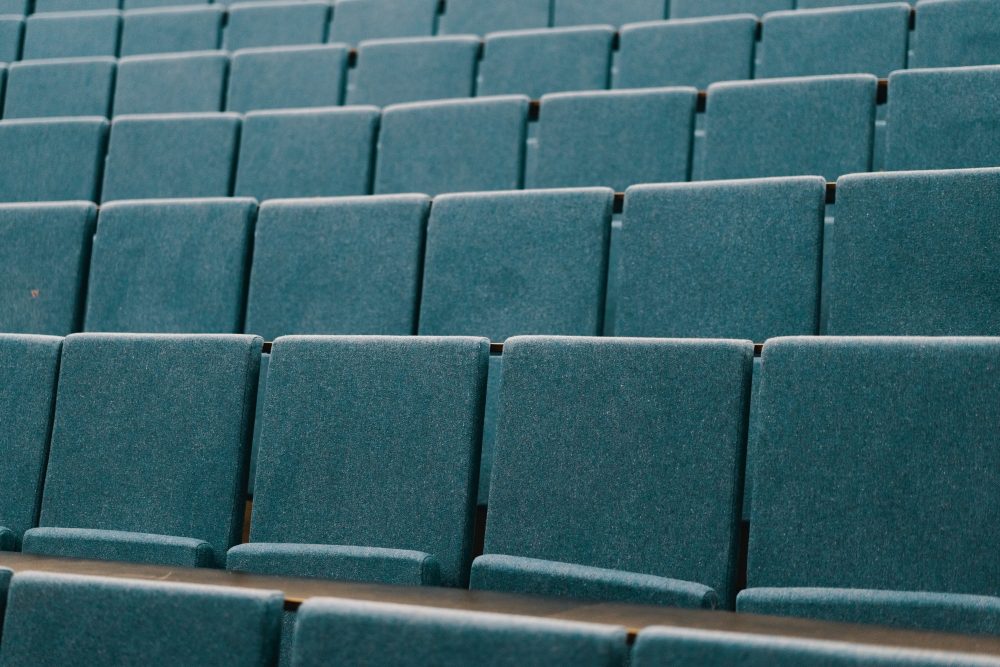Supporting students to thrive in their transition to university by enhancing the curricula with our head, hand and heart
Written by: Camila Devis-Rozental

8 min read
‘Today I’m gonna talk a bit about the jump from school to university. I call it a jump because that’s exactly how it feels. Like a leap. With your eyes shut. Off a cliff. At night. Into shark infested waters. At least that’s how it felt for me the first time.’
(Second-year student on their experience of starting university, Devis-Rozental and Barron, 2020, p. 83)
For any educator to read this student’s lived experience is hard. Indeed, most of us work in education because we want to make a difference and change lives for the better, and knowing that any of our students can feel like this at any point is not something that we would want. Still, it happens.
This paper argues that the transition from school environments, with an emphasis on results from examinations, does not prepare students well for the self-directed type of learning required at university in the UK (Murtagh, 2010). It proposes three ways in which schools can better support students in preparing, mak
Join us or sign in now to view the rest of this page
You're viewing this site as a guest, which only allows you to view a limited amount of content.
To view this page and get access to all our resources, join the Chartered College of Teaching (it's free for trainee teachers and half price for NQTs) or log in if you're already a member.
- Devis-Rozental C (2018) Developing Socio-Emotional Intelligence in Higher Education Scholars. Cham: Springer.
- Devis-Rozental C and Barron M (2020) Mind the gap: Supporting students to have a successful transition to university, it is everyone’s responsibility. In: Devis-Rozental C and Clarke S (eds) Humanising Higher Education: A Positive Approach to Enhancing Wellbeing. Cham: Springer, pp. 82–106.
- Devis-Rozental C and Farquharson L (2020). What influences students in their development of socio-emotional intelligence whilst at university? Higher Education Pedagogies 5(1): 294–309.
- Galvin K and Todres L (2013) Caring and Well-Being: A Lifeworld Approach. Oxon: Routledge.
- Hassel S and Ridout N (2018) An investigation of first-year students' and lecturers' expectations of university education. Frontiers in Psychology 8: 2218.
- Jones H (2011) Are our students prepared for university? Bioscience Education 18(1): 1–12.
- Joseph-Salisbury R (2020) Race and Racism in English Secondary Schools. London: Runnymede.
- Lowe H and Cook A (2003) Mind the gap: Are students prepared for higher education? Journal of Further and Higher Education 27: 53–76.
- Meehan C and Howells K (2018) ‘What really matters to freshers?’: Evaluation of first year student experience of transition into university. Journal of Further and Higher Education 42(7): 897–907.
- Murtagh L (2010) They give us homework! Transition to higher education: The case of initial teacher training. Journal of Further and Higher Education 34: 405–418.
- Myhill D, Banerjee P, Herbert D et al. (2019) Transforming transitions: A HEFCE catalyst project.
- O’Brien K and Lomas T (2017) Developing a growth mindset through outdoor personal development: Can an intervention underpinned by psychology increase the impact of an outdoor learning course for young people? Journal of Adventure Education and Outdoor Learning 17(2): 133–147.
- Rozental-Devis D (2020) Humanising higher education by listening to the student voice. In: Devis-Rozental C and Clarke S (eds) Humanising Higher Education: A Positive Approach to Enhancing Wellbeing. Cham: Springer, pp. 64–80.
- Seldon A, and Martin A (2018) The positive and mindful university. London: HEPI.
- Todres L, Galvin KT and Holloway I (2009) The humanisation of healthcare: A value framework for qualitative research. International Journal of Qualitative Studies on Health and Well-Being 4(2): 68–77.
- Van Rooij E (2018) Secondary School Students' University Readiness and their Transition to University. Groningen: University of Groningen.
- Zhu H, Jiawei C, Wang H et al. (2019) Day re-construction: Understanding how college students manage their time through self-monitoring. In: Proceedings of the 52nd Hawaii International Conference on System Sciences, Maui, USA, 8–11 January 2019, pp. 3820–3829. Manoa: University of Hawaii.
0
0
votes
Please Rate this content
Subscribe
Please login to comment
0 Comments
Oldest
Newest
Most Voted
Inline Feedbacks
View all comments










